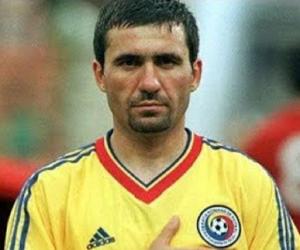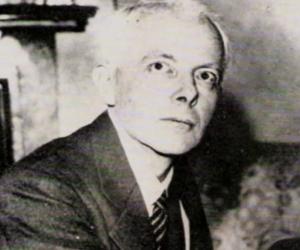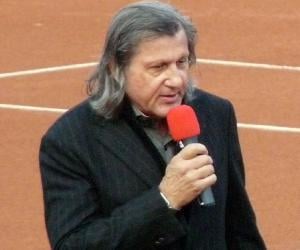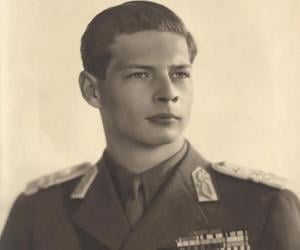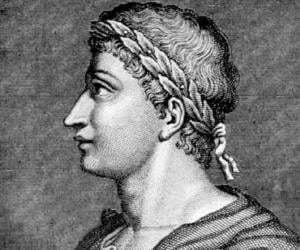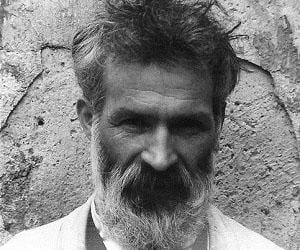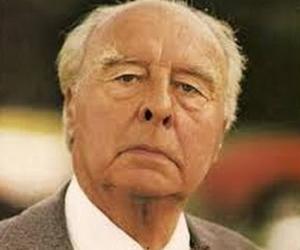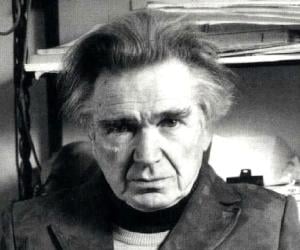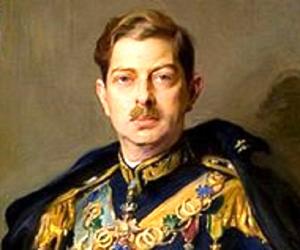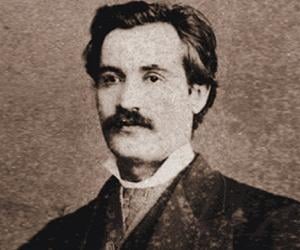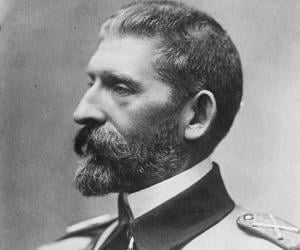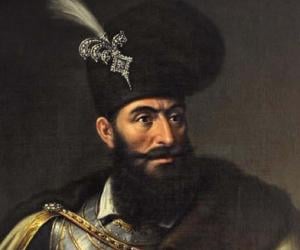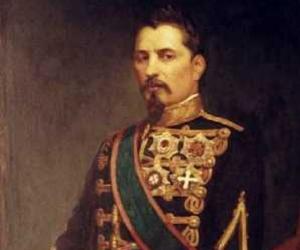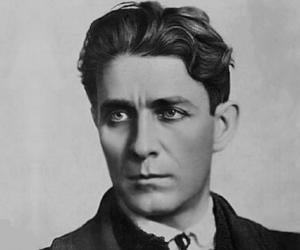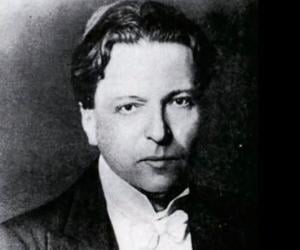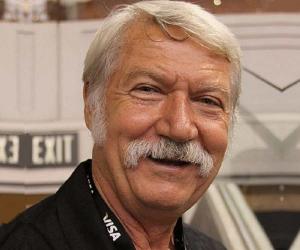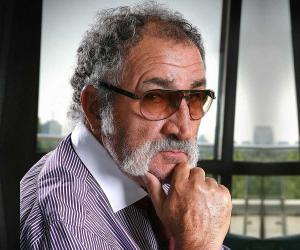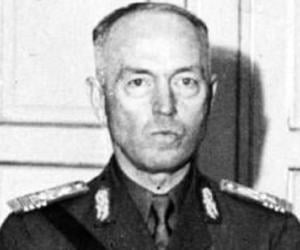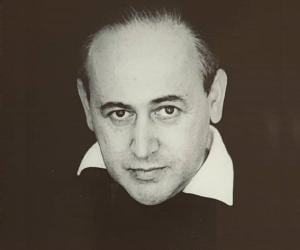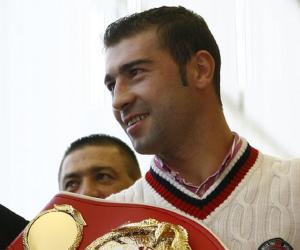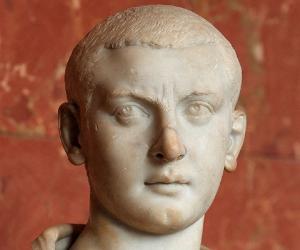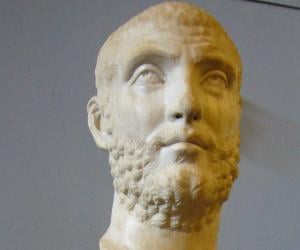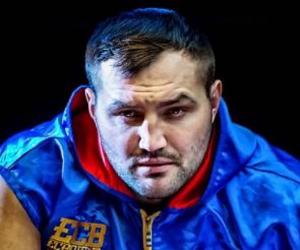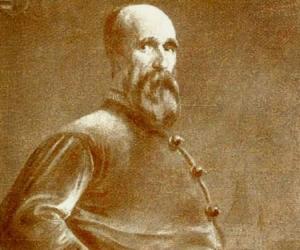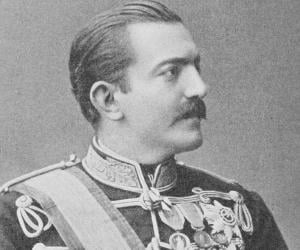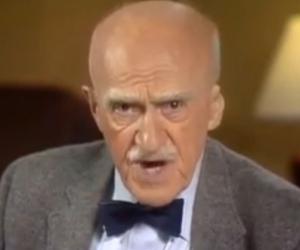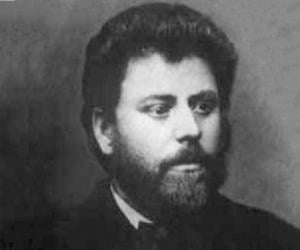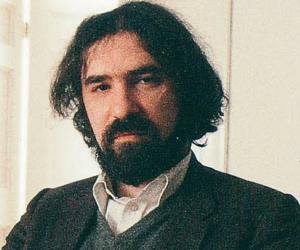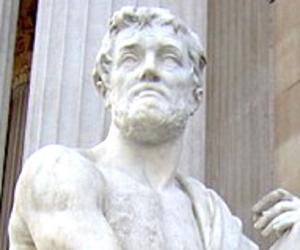Famous Romanian Men
Romania, the country that has inspired literary best-sellers like Jules Verne’s “The Castle in the Carpathians” and Bram Stoker’s “Dracula”, has also produced a wad of inspirational men. That is right! This ninth largest wine producing country in the world has been home to a fine stream of ingenious men who have influenced the world in mind-boggling ways. Do not believe us? Then read this. Did you know that the world’s smallest ever printed money was invented in Romania? Did you know that the first modern jet engine was invented by a Romanian? Did you know that the Romanian city of Timisoara was the first in Europe to get electric street lights? With achievements of such scale that paved a way for others to follow, it will not be an overestimation to credit the Romanian men for their inventiveness. Without further ado, let us discover the inspiring memoirs of many such famous Romanian men in their biographies below. Their timeline, trivia, and interesting facts will be a treat for anyone willing to learn all about them.
Vote for Your Favourite Romanian Men
Right IconThis ranking is based on an algorithm that combines various factors, including the votes of our users and search trends on the internet.
1
Gheorghe Hagi
(Legendary Romanian Footballer and Owner of Liga I Club 'Farul Constanța')
Birthdate: February 5, 1965
Sun Sign: Aquarius
Birthplace: Sacele, Romania
Known to fans as The Maradona of the Carpathians, Gheorghe Hagi is considered the most successful Romanian footballer of all time. An attacking midfielder, he began his career with FC Constanța, before playing for teams such as Real Madrid, Brescia, and Barcelona. Post-retirement, he managed the Romanian team.
2
Bela Bartok(One of the Most Important Composers of the 20th Century)
Birthdate: March 25, 1881
Sun Sign: Aries
Birthplace: Sânnicolau Mare, Romania
Died: September 26, 1945
Bela Bartok was a Hungarian pianist, composer, and ethnomusicologist. Widely regarded as one of the 20th century's most prominent composers, Bartok is also counted among Hungary's greatest composers of all time. He is credited with co-founding comparative musicology, which came to be known as ethnomusicology.
3
Sebastian Stan(Best Known for His Role as 'Bucky Barnes / Winter Soldier' in the Marvel Cinematic Universe)
Birthdate: August 13, 1982
Sun Sign: Leo
Birthplace: Constanța, Romania
Sebastian Stan serves as an inspiration to many youngsters as he overcame his difficult beginnings to become a popular actor in the American film industry. A self-made man, he learned the art of acting at the prestigious Shakespeare's Globe Theatre in London and went on to star in hit films like Captain America: Civil War and Avengers: Endgame.
4
Ilie Năstase
(Former World Number One Romanian Tennis Legend)
Birthdate: July 19, 1946
Sun Sign: Cancer
Birthplace: Bucharest, Romania
Once number 1 in singles, Romanian tennis player Ilie Năstase created became the first European to cross $1 million in career prize money. A 3-time Davis Cup finalist, he won major titles such as the French Open, the US Open, and Wimbledon. He has also penned 2 French novels and a memoir.
5
Michael I of Romania
(The Last King of Romania (1927 - 1930))
Birthdate: October 25, 1921
Sun Sign: Scorpio
Birthplace: Peleș Castle, Sinaia, Romania
Died: December 5, 2017
Michael I, the last King of Romania, ruled the country twice, of which the first-tenure was as a minor. During his second tenure, he removed Ion Antonescu’s government that aligned Romania with Nazi Germany. He declared alliance with Allies but was eventually forced to abdicate by Petru Groza’s government on December 30, 1947, as Romania officially became a People's Republic.
Birthdate: March 20, 0043
Sun Sign: Pisces
Birthplace: Sulmo, Italy, Roman Republic
Died: 0017 AD
Roman poet Publius Ovidius Naso, better known as Ovid, lived during the rule of Augustus. He is held at par with Latin legends Virgil and Horace. Remembered for his mythological masterpiece the Metamorphoses, a 15-book Latin poem, he spent his final years exiled in a city on the Black Sea.
7
Gheorghe Mureșan
(One of the Two Tallest Basketball Players Who Have Played in the History of ‘NBA’)
Birthdate: February 14, 1971
Sun Sign: Aquarius
Birthplace: Tritenii de Jos, Romania
Romanian former professional basketball player Gheorghe Dumitru Mureșan, also called Ghiță, with a height of 7 feet 7 inches (2.31 m), is counted among the two tallest basketball players (tied with Sudanese-American professional basketball player Manute Bol) in the history of the National Basketball Association (NBA). Ghiță played for the Washington Bullets and New Jersey Nets during his NBA career.
Birthdate: February 19, 1876
Sun Sign: Pisces
Birthplace: Hobita, Romania
Died: March 16, 1957
Constantin Brâncuși was a Romanian sculptor, painter, and photographer. A pioneer of modernism, he is considered one of the most influential sculptors of the 20th-century. The son of poor parents, he worked hard to fund his training at the Bucharest School of Fine Arts and became a skilled sculptor. He left behind 1200 photographs and 215 sculptures at his death.
9
John Houseman
(Romanian-Born American Actor, Director, and Producer)
Birthdate: September 22, 1902
Sun Sign: Virgo
Birthplace: Bucharest, Romania
Died: October 31, 1988
Romanian-born US actor and producer John Houseman is remembered for his Academy Award- and Golden Globe-winning role in The Paper Chase. Primarily a character actor, he also gained fame as a theater director and producer and collaborated with director Orson Welles on many projects.
Birthdate: June 13, 1959
Sun Sign: Gemini
Birthplace: Sibiu
Romanian president Klaus Iohannis, who is also the National Liberal Party leader and had initially been a physics teacher, calls himself a “firefighter.” Though he has pledged to fight against corruption in Romania, Iohannis believes his country is not yet ready for the legalization of same-sex marriages.
11
David Popovici
(Romanian Competitive Swimmer)
Birthdate: September 15, 2004
Sun Sign: Virgo
Birthplace: Bucharest, Romania
Height: 6'3" (190 cm)
12
Emil Cioran(One of the Finest Philosophers and Critical Writers from Romania)
Birthdate: April 8, 1911
Sun Sign: Aries
Birthplace: Rasinari, Romania
Died: July 20, 1995
Born to a priest father, Romanian philosopher Emil Cioran grew up to include religious and melancholic themes in his works. His award-winning bestseller A Short History of Decay was followed by books such as The Trouble with Being Born, all of which spoke of illness and suicide.
13
Robert Bobroczky
(Romanian Basketball Player Known for His Striking 7'7" Frame)
Birthdate: July 17, 2000
Sun Sign: Cancer
Birthplace: Arad, Romania
Born to athlete parents, Hungarian-origin Romanian basketball player Robert Bobroczky became famous for his towering 7’7” frame. His abnormal height was apparently found to be a result of genetics and not any disorder. He represented the Italian club Stella Azzurra and later moved to the US to join the SPIRE Institute and Academy.
14
Carol I of Romania
(King of Romania (1881 – 1914))
Birthdate: April 20, 1839
Sun Sign: Taurus
Birthplace: Sigmaringen, Germany
Died: October 10, 1914
Carol I of Romania reigned as the King of Romania from 15 March 1881 to 10 October 1914. He helped Romania achieve independence by leading his men during the Russo-Turkish War and is best remembered as the Hohenzollern-Sigmaringen dynasty's first ruler. During his reign, Romania's infrastructure and industry were improved.
Birthdate: October 15, 1893
Sun Sign: Libra
Birthplace: Peleș Castle, Sinaia, Romania
Died: April 4, 1953
Carol II of Romania reigned as king of Romania from 1930 to 1940. He played a major role in establishing a royal dictatorship in Romania by abolishing the political parties and removing the 1923 constitution. He replaced the political parties with the National Renaissance Front, a single monopoly party of government.
16
Mihai Eminescu
(The National Poet of Romania and a Major Figure of Romanticism)
Birthdate: January 15, 1850
Sun Sign: Capricorn
Birthplace: Botoșani, Romania
Died: June 15, 1889
Considered the national poet of Romania, Mihai Eminescu was a major figure of Romanticism in Romanian literature. Starting as an editor for the paper Timpul, he later penned iconic poems such as Luceafărul, or The Evening Star, and stories such as Sărmanul Dionis and Cezara. He, unfortunately, died in a mental asylum.
Birthdate: March 13, 1907
Sun Sign: Pisces
Birthplace: Bucharest, Romania
Died: April 22, 1986
Mircea Eliade was a Romanian fiction writer, historian of religion, professor at the University of Chicago, and philosopher. His stories and novels have been adapted into films, such as The Bengali Night, which was directed by Nicolas Klotz. His works have also influenced writers all over the world.
18
Ferdinand I of Romania
(King of Romania (1914 - 1927))
Birthdate: August 24, 1865
Sun Sign: Virgo
Birthplace: Sigmaringen, Germany
Died: July 20, 1927
Ferdinand I of Romania reigned as the King of Romania from 10 October 1914 until his death on 20 July 1927. He chose to support the Triple Entente during World War I and managed to annex Transylvania, Bukovina, Bessarabia, and parts of Maramureș, Crișana, and Banat, which resulted in the establishment of Greater Romania.
19
Michael the Brave
(Romanian National Hero Known for Uniting All of Romania for the First Time)
Birthdate: January 15, 1558
Sun Sign: Capricorn
Birthplace: Drăgoeşti, Vâlcea
Died: August 9, 1601
Mihai Viteazul, or Michael the Brave, was the prince of Walachia, who became a national hero after uniting all Romanian principalities under his rule. Known for his exploits against the Turks, he also conquered Transylvania and Moldavia. He was killed shortly after suppressing a revolt of Magyar nobles.
20
Dan Petrescu
(Former Romanian Football Player and Manager)
Birthdate: December 22, 1967
Sun Sign: Capricorn
Birthplace: Bucharest, Romania
Dan Petrescu is a Romanian former football player best known for winning the 1998 UEFA Cup Winners' Cup for Chelsea. He also earned 95 caps for his national team between 1989 and 2000. Since his retirement, Dan Petrescu has worked as a manager and is currently managing CFR Cluj. Petrescu is the second-most successful Romanian manager.
21
Alexandru Ioan Cuza
(One of the Founders of the Modern Romanian State)
Birthdate: March 20, 1820
Sun Sign: Pisces
Birthplace: Bârlad, Romania
Died: May 15, 1873
Alexandru Ioan Cuza was the first ruler of the Romanian Principalities after the unification of Moldavia and Wallachia. He is credited with modernizing the Romanian society through a series of reforms. Today, Alexandru Ioan Cuza is regarded as a national hero of Romania. He is also counted among the founders of the modern Romanian state.
22
Corneliu Zelea Codreanu
(Romanian Politician & Founder and Leader of the Legionary Movement (Iron Guard))
Birthdate: September 13, 1899
Sun Sign: Virgo
Birthplace: Huși, Romania
Died: November 30, 1938
Romanian far-right politician Corneliu Zelea Codreanu founded the anti-Semitic and fascist movement called Iron Guard, also known as the Legionary Movement. While the movement turned into a successful political party, it was crushed by King Carol II, while Codreanu was imprisoned and then shot to death while escaping.
23
George Enescu
(Romanian Composer, Violinist and Conductor)
Birthdate: August 19, 1881
Sun Sign: Leo
Birthplace: George Enescu, Romania
Died: May 4, 1955
24
Mircea Lucescu
(One of the Most Decorated Managers and Successful Football Players of All Time)
Birthdate: July 29, 1945
Sun Sign: Leo
Birthplace: Bucharest, Romania
Romanian former footballer Mircea Lucescu is known for his successful stint in the Romanian First League, having won 6 titles. He also led the Romanian team in the 1970 FIFA World Cup. Post-retirement, he had a successful stint as a manager, especially with the Ukrainian club Dynamo Kyiv.
25
Béla Károlyi
(Gymnastics Coach Known for Developing the Romanian Centralised Training System for Gymnastics)
Birthdate: September 13, 1942
Sun Sign: Virgo
Birthplace: Cluj-Napoca, Romania
Bela Karolyi is a prominent gymnastics coach who developed the Romanian centralized training system for gymnastics. His wife, Márta Károlyi, is also a gymnastics coach and together they have trained numerous Olympic, European, and World champions. The couple has been credited with transforming gymnastic coaching in USA. Many gymnasts have called him out for his abusive coaching style.
26
Adrian Mutu
(Professional Football Manager & Former Player)
Birthdate: January 8, 1979
Sun Sign: Capricorn
Birthplace: Călinești, Romania
Known for his “bad boy” image, Romanian former footballer Adrian Mutu has played for teams such as Inter Milan, Chelsea, and Juventus. Controversy’s favorite child, he was once banned by Chelsea for consuming cocaine. He also made headlines for drinking the blood of porn star Laura Andresan.
27
Ion Țiriac
(Former Romanian Tennis Player)
Birthdate: May 9, 1939
Sun Sign: Taurus
Birthplace: Brașov, Romania
Ion Tiriac is a Romanian businessman and retired tennis and ice hockey player. He is best known for winning the men's doubles event at the 1970 French Open. In 2013, he was made an inductee of the International Tennis Hall of Fame. As an ice hockey player, Tiriac played for his national team as defenseman at the 1964 Winter Olympics.
28
Ion Antonescu
(Conducător of Romania (1940 - 1944))
Birthdate: June 14, 1882
Sun Sign: Gemini
Birthplace: Pitești, Romania
Died: June 1, 1946
Ion Antonescu was a Romanian marshal who served as a dictator during World War II. Appointed the prime minister in 1940, he formed a military dictatorship in Romania and joined hands with the Axis powers. His regime was ended by a coup d’etat led by King Michael, and he was sentenced to death.
29
Paul Celan
(One of the Most Important and Influential German-Language Poets of the Post-Second World War Era)
Birthdate: November 23, 1920
Sun Sign: Sagittarius
Birthplace: Chernivtsi, Ukraine
Died: April 20, 1970
Paul Celan was a Romanian-born poet who wrote in the German language. One of the most important and influential German-language poets of the post-Second World War era, Celan was awarded the Bremen Literature Prize and the Georg Büchner Prize in 1958 and 1960 respectively. Paul Celan is also remembered for his work as a translator.
30
Lucian Bute
(Romanian-Canadian Former Professional Boxer and IBF Super-Middleweight Title Champion from 2007 to 2012)
Birthdate: February 28, 1980
Sun Sign: Pisces
Birthplace: Pechea, Romania
Romanian-Canadian former professional boxer Lucian Bute is best known for winning the IBF super-middleweight title for the first time in 2007 and then defending it successfully for nine consecutive times before losing it to Carl Froch in May 2012. He was given the number one ranking in the division by the American boxing magazine called The Ring.
31
Cristian Chivu
(Former Romanian Footballer Who Played as a Defender)
Birthdate: October 26, 1980
Sun Sign: Scorpio
Birthplace: Reșița, Romania
Cristian Chivu is a Romanian retired football player who earned 75 caps for his national team between 1999 and 2010. He also represented popular clubs like Inter Milan, winning the FIFA Club World Cup and the UEFA Champions League for the team. Cristian Chivu is currently serving as the head coach of Internazionale's Primavera side.
32
Gordian III
(Youngest Roman Emperor (238 - 244))
Birthdate: January 20, 0225
Sun Sign: Aquarius
Birthplace: Rome
Died: February 11, 0244
Gordian III was a Roman emperor who reigned from 238 to 244 AD. He was the youngest Roman emperor as he ascended the throne at age 13. His reign was marked by a series of major earthquakes that swallowed a number of cities along with their inhabitants.
33
Carinus
(Roman Emperor (283 - 285))
Birthdate: 0257 AD
Birthplace: Dalmatia, Croatia
Died: June 30, 0285
Carinus was a Roman emperor who reigned from 283 to 285 AD. He was the son of Emperor Carus. Carinus is often counted among the worst Roman emperors and this reputation of his may have been orchestrated by his successful opponent, Diocletian.
34
Christian Hammer
(Romanian-German Professional Boxer)
Birthdate: September 27, 1987
Sun Sign: Libra
Birthplace: Galați, Romania
Height: 6'2" (188 cm)
35
Răzvan Lucescu
(Romanian Retired Footballer Who Played as a Goalkeeper)
Birthdate: February 17, 1969
Sun Sign: Aquarius
Birthplace: Bucharest, Romania
Răzvan Lucescu is a Romanian former football player who played as a goalkeeper. Although he did not achieve much popularity as a player, Lucescu is renowned for his coaching career. In 2018 and 2020, Răzvan Lucescu was named Romania Coach of the Year by Gazeta Sporturilor.
36
Gheorghe Popescu
(Romanian Former Football Defender)
Birthdate: October 9, 1967
Sun Sign: Libra
Birthplace: Calafat, Romania
Romanian retired footballer Gheorghe Popescu, known to his fans as Gica, was known as a successful defender and midfielder. Apart from winning honors such as the Copa del Rey and the UEFA Cup Winners' Cup with Barcelona, he has also been a 6-time Romanian Footballer of the Year.
Birthdate: December 4, 1984
Sun Sign: Sagittarius
Birthplace: Bucharest, Romania
Alec Secareanu is a Romanian actor who achieved international fame in 2017, when he played Gheorghe Ionescu in the British romantic drama film God's Own Country. In the same year, he received a nomination for Best Actor at the British Independent Film Awards for his performance in the film.
Birthdate: 1470 AD
Birthplace: Dalnic, Romania
Died: July 20, 1514
Birthdate: November 4, 1951
Sun Sign: Scorpio
Birthplace: Murfatlar
Former Romanian politician Traian Băsescu was impeached and re-instated by a popular referendum once in 2007 and again in 2012. As the governor of Bucharest, he successfully reduced the number of stray dogs. He also sent Romanian troops to serve as part of George Bush’s war in Iraq.
40
Sergiu Celibidache
(Greatest conductor of the 20th century)
Birthdate: June 28, 1912
Sun Sign: Cancer
Birthplace: Roman, Romania
Died: August 14, 1996
Height: 5'7" (170 cm)
41
Prince Nicholas of Romania
(Prince)
Birthdate: August 5, 1903
Sun Sign: Leo
Birthplace: Peleș Castle, Sinaia, Romania
Died: June 9, 1978
42
Milan I of Serbia
(King of Serbia (1882 - 1889))
Birthdate: August 22, 1854
Sun Sign: Leo
Birthplace: Mărășești, Romania
Died: February 11, 1901
Milan I of Serbia reigned as the King of Serbia from 1882 until his sudden abdication in 1889. He abdicated in favor of Alexander I of Serbia, which was unexpected at that time. During his reign, Milan focused on developing natural resources and improving the means of communication. However, he was largely unpopular due to reckless extravagance and heavy taxation.
43
Ernie Grunfeld
(Basketball Player)
Birthdate: April 24, 1955
Sun Sign: Taurus
Birthplace: Satu Mare, Romania
Romanian-American former professional basketball player Ernest Grunfeld was part of Team USA that won gold medals at the 1975 Pan American Games and 1976 Summer Olympics. Grunfeld played with NBA teams Milwaukee Bucks, Kansas City Kings and New York Knicks. He later served as General Manager of Knicks and Bucks respectively and as president of basketball operations for Washington Wizards.
44
Joseph M. Juran
(Engineer)
Birthdate: December 24, 1904
Sun Sign: Capricorn
Birthplace: Brăila, Romania
Died: February 28, 2008
45
Ion Creanga
(Romanian Author Who Was a Prominent Member of the Junimea Literary Society)
Birthdate: March 1, 1837
Sun Sign: Pisces
Birthplace: Târgu Neamț, Moldavia
Died: December 31, 1889
Romanian author Ion Creanga is best remembered for his pioneering contribution to children’s literature, Childhood Memories. He was associated with the Romanian literary society Junimea and the realist art movement. He also enriched the folklore of Romania, drawing on the fairy tales of his land.
46
Stephen III of Moldavia
(Prince of Moldavia (1457 – 1504))
Birthdate: 1433 AD
Birthplace: Borzești, Romania
Died: July 2, 1504
Stephen III of Moldavia or Stephen the Great was a Prince of Moldavia. He co-ruled with his father Bogdan II, who was killed in 1451 in a conspiracy. During his final years, Stephen co-ruled with his son Bogdan III. His rule was marked by a period of stability in Moldavia. Romanians consider him a great ruler and a national hero.
Birthdate: November 30, 1945
Sun Sign: Sagittarius
Birthplace: Galați, Romania
48
Ștefan Radu
(Romanian Football Player Best Known for His Successful Stint with the Serie A Club 'Lazio')
Birthdate: October 22, 1986
Sun Sign: Libra
Birthplace: Bucharest, Romania
Romanian footballer Ștefan Radu, best known as a left-back or centre-back for the Italian club Lazio, with whom he has won the Coppa Italia and the Supercoppa Italiana thrice each. His achievements earned him many honors, such as the Meritul Sportiv from the president of Romania.
49
Tacitus(One of the Greatest Roman Historians by Modern Scholars)
Birthdate: 0056 AD
Birthplace: Gallia Narbonensis
Died: 0120 AD
Tacitus was a Roman politician and historian. He is widely considered one of the greatest Roman historians of all time. Tacitus is best remembered for his fascinating insights into the psychology of politics, especially power politics.
50
Cătălin Moroșanu
(Romanian Kickboxer Known for His Record 17 Consecutive Wins in SUPERKOMBAT)
Birthdate: June 30, 1984
Sun Sign: Cancer
Birthplace: Cotnari, Romania
With 17 consecutive wins, Romanian kickboxer Cătălin Moroșanu holds the longest winning streak record in the history of SUPERKOMBAT. Initially a rugby player, he later switched to kickboxing. He has also appeared on TV reality shows, participated in anti-bullying campaigns, and been a county councilor.
